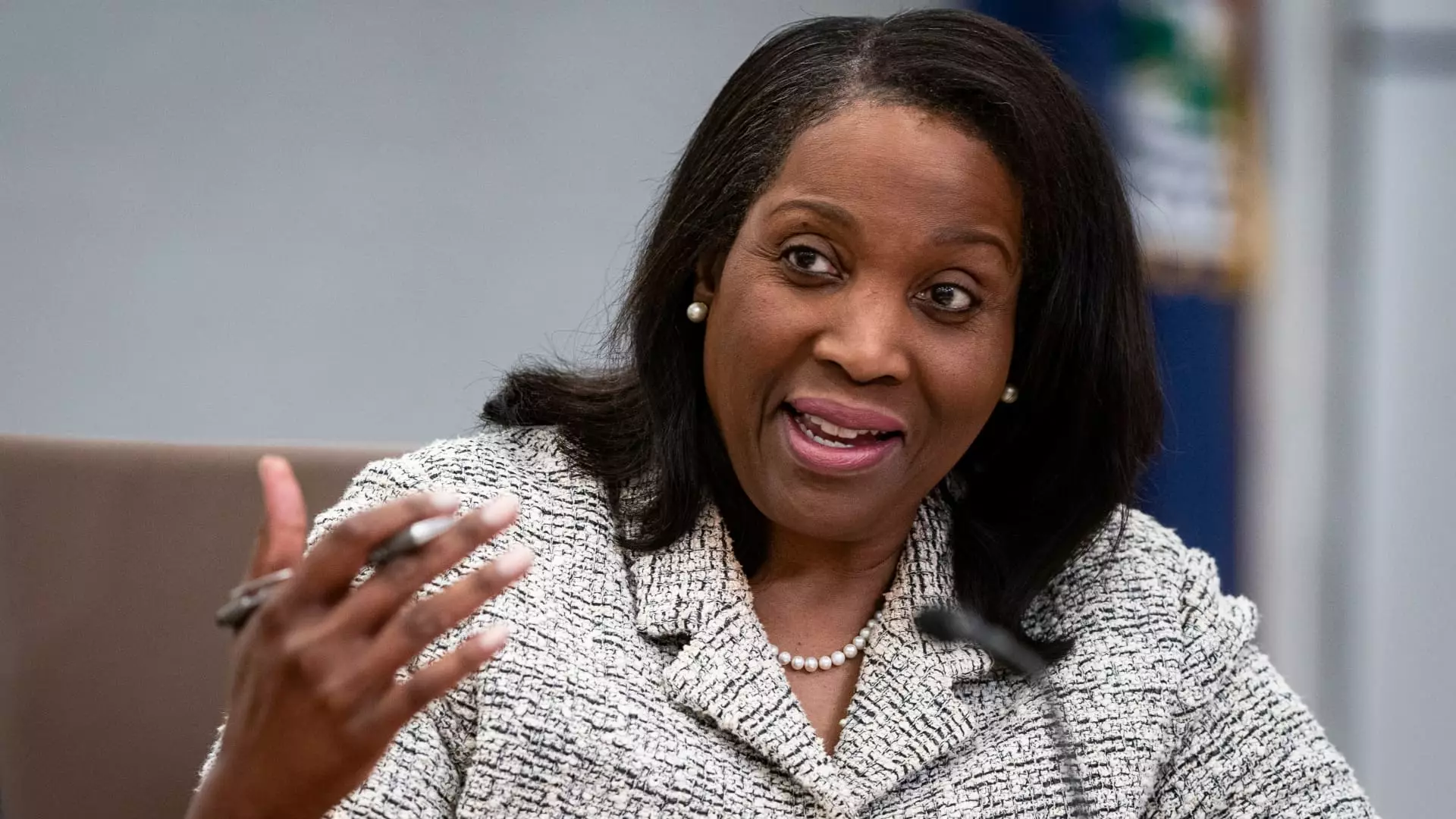In recent weeks, the public discourse surrounding Federal Reserve Governor Lisa Cook has devolved into a troubling spectacle of politicized accusations and government overreach. The Department of Justice’s (DOJ) decision to investigate Cook, spurred by a criminal referral from a vocal critic aligned with the previous Trump administration, exposes a broader crisis: the undermining of the independence crucial to the Federal Reserve’s legitimacy. When political actors attempt to leverage criminal investigations to influence monetary policy and board membership, the fabric of institutional autonomy unravels, risking long-term economic stability for short-term political gain.
The core issue here isn’t just about individual misconduct—if any exists—but the improper use of investigative and legal tools as instruments of political revenge. The letter sent to Fed Chair Jerome Powell, urging immediate dismissal of Cook based on unfounded allegations, exemplifies manipulative tactics designed to sway central bank policy through personal attacks rather than evidence-based review. Such actions threaten to create a hostile environment that discourages qualified individuals from serving on the Fed, fearing baseless harassment or politically motivated investigations. The Federal Reserve’s independence is a cornerstone of effective monetary policy—compromising that principle in favor of partisan agendas is a dangerous precedent.
This incident highlights how the federal oversight process can be misused as a political weapon, rather than a safeguard of integrity. The fact that Powell cannot legally dismiss Cook—that only the president can remove Fed governors—further complicates this manufactured controversy. Yet, political actors and their allies attempt to bypass legal statutes through inflammatory rhetoric, which damages the perception of the Fed’s neutrality. The line between legitimate oversight and political sabotage becomes blurred, potentially setting a precedent where future policymakers are wary of serving openly, fearing that their reputations and careers could be sabotaged through unfounded accusations.
The Risks of Undermining Institutional Integrity
The narrative proliferated by opponents like Bill Pulte, who publicly accused Cook of mortgage fraud, underscores how personal and political attacks are increasingly fueling federal appointments’ scrutiny. While legitimate concerns about financial transparency are valid, weaponizing such allegations without concrete evidence is irresponsible and corrosive. Cook’s response—that she is gathering facts to clarify her financial history—demonstrates her resilience amid this assault. Still, the broader effect is a climate of intimidation that deters competent leadership and erodes trust in the agency’s ability to function independently.
Furthermore, the involvement of a figure like Pulte, with apparent conflicts and a political bias against Powell, illustrates how factional interests are now spilling into the realm of financial governance. The fact that a political figure felt emboldened to call for a criminal probe based on a mortgage application from years before her tenure raises serious questions about the motives behind these actions. Is this about actual misconduct, or retaliation against a fed-appointed official who represents a different ideological stance on monetary policy? Where does accountability end and political vendettas begin?
In this atmosphere, even well-qualified individuals such as Cook must weigh whether participation in central banking is worth the relentless external pressure. As a center-wing liberal, I believe in the importance of maintaining an independent Federal Reserve capable of making prudent decisions free from partisan interference. We should criticize policies or actions we disagree with, but not at the expense of the institution’s integrity. Politicians and their allies must recognize that pursuing baseless investigations for partisan vendettas weakens democratic institutions and harms the economy by introducing instability and uncertainty into the governance of monetary policy.
The Endgame: Political Exploitation or Genuine Oversight?
The ongoing saga surrounding Lisa Cook epitomizes a broader trend of the political weaponization of federal agencies—a trend that risks turning vital institutions into pawns in partisan conflicts. When public officials and political operatives manipulate legal processes and leverage media attention to target central figures, the consequences extend beyond individual careers. They undermine public confidence in the central bank’s decision-making processes, which are essential for managing inflation, ensuring employment, and stabilizing the economy.
In my view, genuine oversight and accountability are crucial, but they must be separated from political revenge. The current approach—characterized by inflammatory rhetoric, demands for immediate dismissals, and threats of criminal investigations—serves only to distort the purpose of accountability. There is a fine line between holding officials accountable for legitimate misconduct and weaponizing investigations as tools for political harassment.
As a proponent of balanced liberal principles, I support safeguarding the independence of institutions like the Federal Reserve while insisting on transparency and accountability. The proper response to concerns about conduct must involve thorough, fair investigations rooted solely in evidence—free from the influence of partisan agendas. Anything less betrays the foundational principles of democratic governance and risks destabilizing the very economic system these institutions aim to protect. In an era of heightened polarization, the challenge remains: how do we preserve institutional integrity without succumbing to the toxic temptations of political vendettas and character assassinations?


Leave a Reply